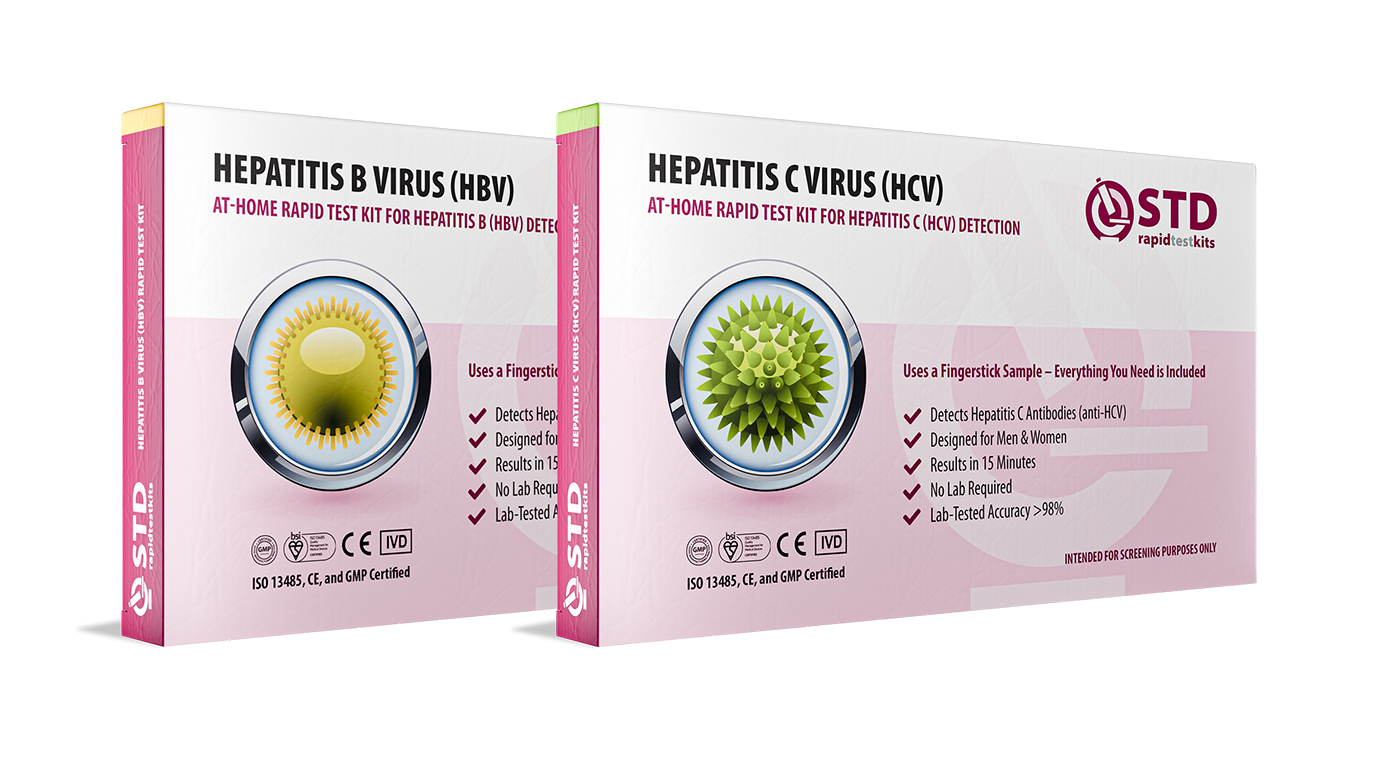Quick Answer: Still feeling hungover days later may be a warning sign of undiagnosed Hepatitis C. Fatigue, nausea, abdominal pain, and brain fog can mimic post-drinking symptoms, but point to liver inflammation instead. If symptoms linger, test.
“I Thought It Was the Tequila, Not My Liver Dying”
Ty, 33, didn’t think twice about the dull ache on his right side the day after his friend's birthday bash. “I figured I slept weird. Or maybe it was all the shots.” But days later, he still felt like he was dragging a weighted blanket around. He wasn’t hungover. He was sick, and didn’t know it yet.
“I was tired all the time. Nauseous. My appetite disappeared. I thought I was just partying too much.”
Ty's story isn’t unique. Every year, thousands of people mistake Hepatitis C symptoms for hangovers, stress, depression, or burnout. According to the CDC, an estimated 2.4 million people in the U.S. live with chronic Hep C, and many don’t know it. Why? Because the virus often hides in plain sight, wearing the mask of everyday discomfort.
When your liver is inflamed, whether from a virus or alcohol, it struggles to filter toxins, regulate digestion, and store energy. The result? You feel foggy, nauseous, and absolutely wiped out. Sound familiar?
When Hep C Feels Like a Hangover: Symptom Confusion 101
Let’s get real about what Hepatitis C actually feels like in the body. It’s not always some dramatic, movie-scene illness. Often, it’s subtle. Creeping. Almost boring in how ordinary it seems, until it isn’t.
Fatigue is the most reported symptom of chronic Hep C, according to a PubMed review. People describe it as a “bone-deep tired” that doesn’t improve with rest. Nausea, poor appetite, and muscle aches follow close behind. Some report feeling mentally foggy or emotionally flat, two side effects that are also common after drinking or during hangover recovery.
That’s where the confusion starts. Both Hep C and heavy drinking can cause:
- Right-sided abdominal pain or tenderness - Fatigue that lasts for days - Brain fog and mood swings - Low-grade nausea or vomiting - Jaundice (yellowing eyes or skin, though rare early on) - Loss of appetite - Mild fever or chills
So how do you know if you’re dealing with Hep C or just recovering from a rough weekend? The short answer: If symptoms linger longer than 48–72 hours, or if they start happening without alcohol at all, you need to test.
Ty didn’t test until he collapsed at work. His liver enzymes were off the charts. A simple blood panel revealed HCV antibodies, his immune system had been fighting a war he didn’t know about.

People are also reading: How Public Awareness Campaigns Are Changing the Conversation Around STDs
This Isn’t Just a Drinking Problem, It’s a Detection Problem
One of the cruelest things about Hepatitis C is how easy it is to miss, especially for people who already carry stigma around drinking, drug use, or sexuality. Many folks assume Hep C only happens to “other people.” Injection drug users. Incarcerated people. Someone who “deserved it.” But that’s a lie born from stigma, not science.
In reality, you can get Hep C from a one-time exposure. That includes:
- A shared straw during drug use (not just needles) - Unsterile tattoo equipment - Reused manicure tools at an unregulated salon - Medical procedures in other countries - Condomless sex involving blood, especially for gay and bi men - Birth from an infected parent
Real-world studies show that many Hep C patients never injected drugs, and never knew they were at risk. According to the National Library of Medicine, alcohol use can accelerate liver damage in people with undiagnosed Hep C by up to 300%, but it also delays diagnosis because symptoms look identical to hangover or withdrawal.
It’s not just a liver issue. It’s a social issue. People delay testing because they’re ashamed. They think their past disqualifies them from care. Or they don’t want to admit something might be wrong because that would mean facing it.
But testing doesn’t mean judgment. It means power. It means clarity. And yes, it could literally save your liver.
Whether you’re feeling wiped after a night out or noticing a new kind of exhaustion that doesn’t quite fit, it’s okay to wonder. It’s okay to ask. It’s okay to test.
Check Your STD Status in Minutes
Test at Home with RemediumHepatitis B & Hepatitis C Test Kit

 For Men & Women
For Men & Women Results in Minutes
Results in Minutes No Lab Needed
No Lab Needed Private & Discreet
Private & DiscreetOrder Now $49.00 $98.00
For all 2 tests
“We Thought It Was Burnout. It Was Hep C.”
Ash and Devon had just moved in together when the symptoms started. “I thought it was grad school stress,” Ash says. “Devon was always tired, barely eating. Their skin looked dull, like something was off.” They chalked it up to pandemic fatigue and the emotional whiplash of being queer in a hostile political climate. But when Devon fainted in the kitchen, Ash demanded answers. The bloodwork came back two days later, positive for Hepatitis C.
“Neither of us had ever injected. We hadn’t even thought about Hep C. We assumed it was only passed through drugs or sex with a lot of partners. But Devon got it from an old tattoo, done at a house party when they were 19.”
This story isn’t about blame. It’s about awareness. Because Hep C doesn’t care who you are, how educated you are, or whether your past is squeaky clean. It cares about exposure. And unless you test, you won’t know you’ve been exposed, until your liver starts to give up.
The early phase of Hepatitis C, also called acute infection, is often silent. No dramatic symptoms. No big red flags. According to the NHS, only 20–30% of newly infected people notice anything. That silence is dangerous. Within six months, the virus can become chronic, especially if your immune system doesn't clear it. And if you’re drinking during that time, socially, casually, binge-style, whatever, your liver is being hit from both sides.
A 2015 NIH study found that people who drink while infected with Hep C are far more likely to develop fibrosis (scarring), cirrhosis, and even liver cancer. But here's the twist: many of them never know they have Hep C until it’s too late to reverse the damage.
So no, your hangover might not be just a hangover. And if you’ve noticed it’s taking longer to “bounce back,” or that your stomach feels tight, your skin itches, or your energy is MIA even after a quiet week, your body might be waving a red flag. The liver is a tough organ. But when it talks, you better listen.
Sex, Stigma, and the Stories We Tell Ourselves
Let’s cut through the shame. The idea that Hep C is punishment, for queerness, sex, drug use, tattoos, mistakes, or simply living, is a lie. But it's a lie that keeps people sick. Because stigma kills curiosity. And curiosity is what gets you tested in the first place.
One Reddit user shared that they waited five years to test for Hep C because they assumed their sex life, messy, queer, joyful, and not always condom-perfect, was a reason to be ashamed. “I thought I’d be judged. That the doctor would ask me who I slept with and I’d have to explain it all. Turns out, they didn’t care. They just wanted to help.”
Here’s the truth: sex isn’t the enemy. Silence is. And the more we tell people that their bodies, desires, and histories are dirty, the fewer people get screened. That’s how epidemics stay hidden in plain sight.
Yes, Hepatitis C can be sexually transmitted, especially in anal sex, sex involving toys or blood, or if other STDs are present. But most people don’t realize that transmission can also happen during kink play, shared grooming tools, or rough sex that causes microtears. It’s not about being “reckless.” It’s about being human.
Testing isn’t an accusation. It’s an act of care, for yourself, for your partners, for your community. And with today’s confidential at-home test kits, you don’t need to explain your past to anyone. You just need to be brave enough to ask the question: “What if this isn’t just stress or alcohol? What if it’s Hep C?”
Peace of mind is one test away. Order your rapid Hep C test kit today, get answers in minutes, in the privacy of your home.

People are also reading: STD Disparities Across Different Communities: Causes and Solutions
Hep C Progression: What Happens If You Don’t Know?
Let’s say you don’t test. You keep thinking it’s burnout. Or hangovers. Or maybe age. So you push through. The virus keeps working quietly, inflaming and scarring your liver tissue. Over time, scar tissue replaces healthy liver cells, a condition called fibrosis. Left untreated, that fibrosis evolves into cirrhosis, a permanent hardening of the liver that drastically limits its function.
Symptoms at that stage go beyond tiredness. You might notice swelling in your belly (ascites), frequent bruising, brain fog from ammonia buildup, or spider-like blood vessels on your skin. By then, the damage is much harder to reverse.
But it doesn’t have to get that far. Modern Hepatitis C treatment is light-years ahead of where it was 10 years ago. Direct-acting antivirals (DAAs) can cure over 95% of people within 8–12 weeks. And no, it’s not chemo. It's not painful. It’s not the end of the world. It's a path back to health, and in some cases, liver regeneration.
According to recent long-term studies, people who clear the virus and cut back on alcohol can see partial reversal of liver scarring over time. That’s not just recovery, it’s hope.
But first, you have to know it’s there.
Check Your STD Status in Minutes
Test at Home with Remedium7-in-1 STD Test Kit

 For Men & Women
For Men & Women Results in Minutes
Results in Minutes No Lab Needed
No Lab Needed Private & Discreet
Private & DiscreetOrder Now $129.00 $343.00
For all 7 tests
You’re Not Dirty. You’re Not Broken. You Just Deserve to Know.
If you’ve read this far, you’re probably wondering. Maybe you’ve had one hangover too many that didn’t feel quite right. Maybe your body is whispering something you’ve been trying to ignore. Maybe it’s not even your body, you’re worried about a partner, a friend, a parent who’s showing signs but brushing them off as “just stress” or “getting older.”
We’re here to tell you: you’re not overthinking it. You're not paranoid. You're not dirty. You’re human. And human bodies get sick, heal, and need help sometimes. Testing isn’t about blame. It’s about being brave enough to say, “I want to know what’s going on.”
For people who’ve ever been shamed over drinking, partying, sex, or drug use, testing can feel like crossing a line. But the real line is between fear and clarity. And you deserve clarity.
Let’s bust a few more myths while we’re here:
Myth: You can only get Hep C if you inject drugs. Truth: Many people with Hep C have never touched a needle. One-time exposures through sex, tattoos, or medical procedures are enough.
Myth: If I had Hep C, I’d have symptoms by now. Truth: Up to 80% of people have no symptoms in early stages. Fatigue and liver pain often don’t show up until damage is advanced.
Myth: There’s no point in testing if I can’t afford treatment. Truth: There are patient-assistance programs and generic options now. And you can’t start treatment, or get help accessing it, until you know you need it.
Myth: I’d rather not know. Truth: That fear is real. But so is your resilience. And once you know, you have options. You have time. You have a path forward.
Take control of your health today. Get tested. Get treated. And get your life, and energy, back.
This Hepatitis C rapid test kit is quick, confidential, and medically accurate. You can do it from home, no questions asked.

People are also reading: How to Rebuild Trust in a Relationship After an STD Diagnosis
Why Now? Because Waiting Doesn’t Protect You
It’s easy to say, “I’ll wait and see if it gets worse.” But Hep C doesn’t work like that. By the time the symptoms are obvious, your liver is already struggling. And if alcohol’s in the mix, the damage happens faster. Studies from the CDC and NIH confirm that co-occurring alcohol use and undiagnosed Hepatitis C leads to earlier liver failure, higher cancer risk, and lower survival rates.
But the opposite is also true: early detection leads to better outcomes, shorter treatments, and even partial liver recovery, especially in younger adults and those who stop drinking or reduce use. That means you don’t need to be perfect. You just need to start.
And it starts with one test.
What No One Tells You After the Party
No one talks about the body whispering “I’m not okay.” They talk about the fun night out. The photos. The brunch the next morning. But not the part where you can’t catch your breath. Or where your pee turns dark. Or where you feel like your bones are filled with sand.
If you’ve ever had that feeling and brushed it off because you were afraid of what it might mean, you’re not alone. But you also don’t have to stay in the dark.
End the guessing game, know your status now. Whether it’s just a hangover or something deeper, you deserve answers. And getting tested doesn’t mean something’s wrong with you. It means you care enough to check.
Order your confidential Hepatitis C test kit here. It’s fast. Private. And it could be the first step toward feeling like yourself again.
FAQs
1. Can Hepatitis C feel like a hangover?
Yes, early Hep C symptoms, like fatigue, nausea, brain fog, and abdominal discomfort, can mimic hangover effects, making diagnosis easy to miss without testing.
2. How long does a hangover usually last?
Most hangovers go away in 24 to 48 hours. If you have symptoms like tiredness, pain, or mental fog that last longer, you might want to get tested for Hep C or other underlying problems.
3. Can you have Hep C and not know it?
Yes, for sure. Many people with acute Hepatitis C don't show any signs of the disease, and some live with it for years without knowing it.
4. Can Hep C be sexually transmitted?
Yes. Especially through rough sex, anal sex, or play involving blood. Transmission risk increases with co-infections like HIV or STIs that cause tears or sores.
5. Is Hepatitis C curable?
Yes. Most people are cured with an 8–12 week course of antivirals. The treatment is safe, effective, and has few side effects.
6. Should I tell my partners that I have Hep C?
Yes, from an ethical point of view, especially if you're doing things that could put you at risk of spreading the disease. But you can be open about it with help and kindness.
7. Can I reverse liver damage from Hep C?
In many cases, yes. If caught early and treated, your liver can heal significantly, especially if you reduce alcohol intake or stop drinking altogether.
8. Where can I get tested privately for Hepatitis C?
At-home testing kits like those from STD Rapid Test Kits allow you to screen confidentially from home, with results in minutes.
9. Is it true only drug users get Hep C?
No. That’s a harmful myth. Many people contract Hep C through sex, tattoos, shared grooming tools, or even medical procedures in some countries.
10. How soon after exposure can I test for Hep C?
Antibody tests are accurate from about 6–12 weeks after exposure. RNA tests can detect infection even earlier. When in doubt, test and re-test.
You Deserve Answers, Not Assumptions
Your body is allowed to be tired. It’s allowed to raise red flags. What matters is how you respond. Maybe this isn’t just stress. Maybe it’s not just alcohol. Maybe it’s your liver asking for help, and maybe that help starts with one test.
Don't wait and guess; get the information you need. This Hepatitis C test kit lets you check your status quickly, privately, and on your own time.
Sources
1. CDC – Symptoms of Hepatitis C
2. CDC – Clinical Signs and Symptoms of Hepatitis C
3. Mayo Clinic – Hepatitis C: Symptoms and Causes
4. Lieber CS, PMC – Alcohol Exacerbates HCV Liver Damage
5. Hutchinson SJ, PubMed – Alcohol Worsens HCV Outcomes
6. Llamosas-Falcón L et al., PubMed – Alcohol Increases Cirrhosis Risk in HCV










